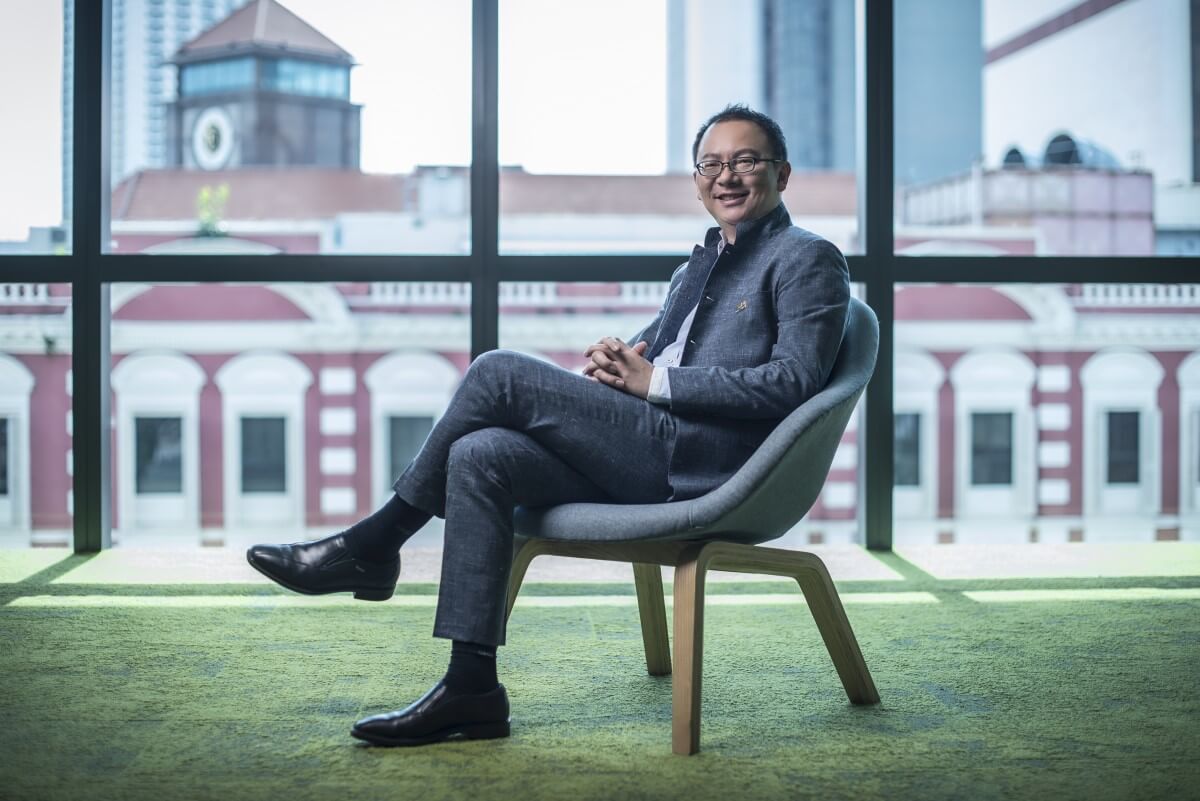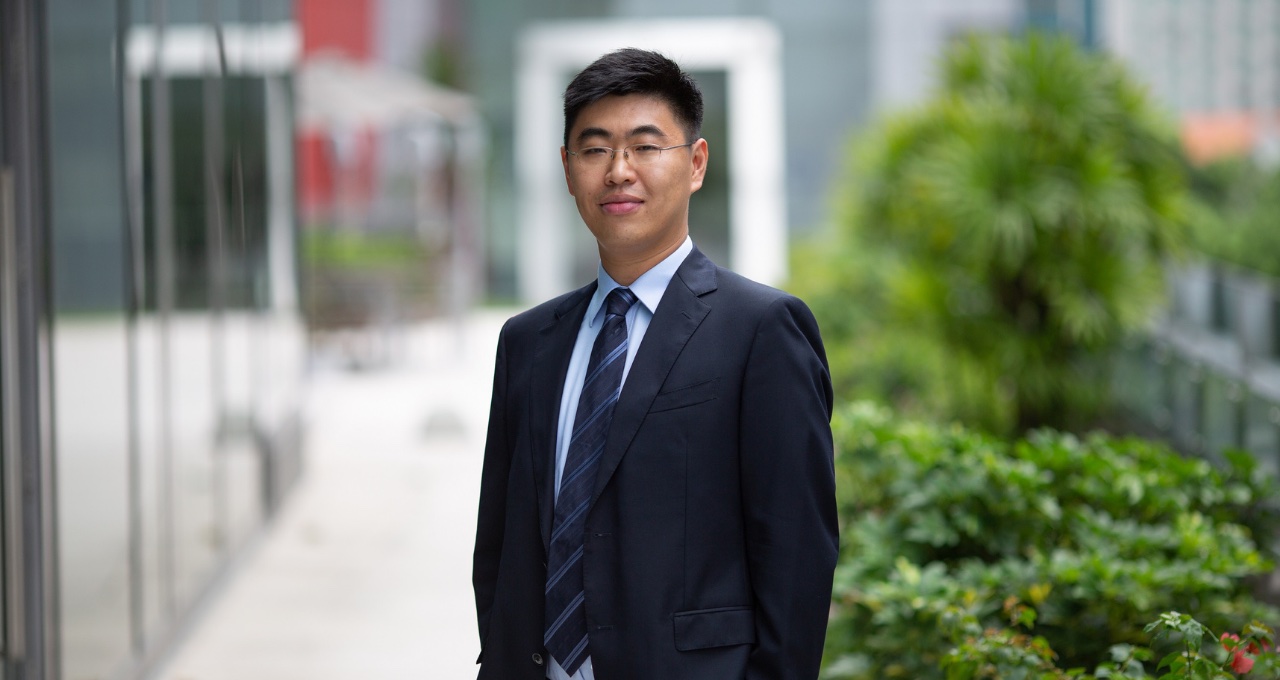Switching Perspectives in School
Switching Perspectives in School
While Jeanne Tai’s undergraduate degree was in History, a love for communication and writing drew her to her first job in journalism. Despite starting off without formal training, she rose the ranks from writer to Her World deputy editor within 5 years. “I learned mostly on the job from my colleagues and bosses.”
But the current head of brand and content at the National Volunteer & Philanthropy Centre (NVPC), adds: “While this was good and resulted in practical insights, sometimes I find I am limited by the industry or sector I work in – resulting in blind spots.
“The skills you learn on the job may not always be ‘the best’, the most up-to-date, or validated by industry experts. Hence, it is always good to broaden your perspective and learn the best-in-class practices validated by data and rigorous research.”
While some are satisfied to gain the perspectives and access enough data from reading up about their industry, Jeanne chose to dive back into school. After 10 years in the workforce, she signed up to do her Master of Science in Communication Management (MCM) at Singapore Management University.
“COVID-19 opened my eyes to how important it is to adapt. Dislocation and changes [spread] overnight because of the pandemic. Employees had to learn how to conduct virtual and hybrid events in a matter of months; organisations had to create new norms for flexi and hybrid work.”
“All this impressed upon me the need to upgrade now. It was the final push I needed to apply for the programme,” she says.
A sunset industry?
She had already taken one big leap before then: Leaving a stable position with Singapore Press Holding’s flagship women’s magazine, Her World, after five-and-a-half years, to enter an adjacent industry, communication – content and branding work with Grab.
The main impetus for that move, she says, was the decline in print journalism in the mid-2010s, as print struggled to deal with the shift to digital media, and information sources became much more far-flung and ground-up – everyone could record and put out their version of the facts, and many did so.
“I made the switch to stay relevant and learn new skills, even though writing and journalism still remains my first love,” says Jeanne. “After doing some research, I felt my core skill set in writing and communication was highly transferrable. Hence, I moved into doing content in-house, first for Grab and then for NVPC.”
Methodical and meticulous
Methodically, she chose the MCM course in SMU, for three main reasons: Industry relevance of the course and teaching process; the emphasis on grooming communication leaders; and SMU’s central location – which was located close to NVPC at Clarke Quay.
“I could commute easily after work to class,” she laughs.
She also appreciated the course’s strategic take on communication. “It’s not just about media relations which is the traditional view. Communication is critical for reputation-building and stakeholder management. I have acquired [from MCM] a more strategic view of comms and I feel I can advise my management more holistically beyond just the ‘media/journalist point of view’.”
While Jeanne says she was excited that MCM’s curriculum includes foundational MBA modules in Strategy, Ethics and Corporate Social Responsibility (CSR), Finance and Marketing – areas she was unfamiliar with – it was a lot to take on initially.
For starters, it meant brushing up on her practical management skills. “I have a good team at work. I purposefully delegated and gave them more autonomy to ‘run the show’ in the past year. This allowed my team more opportunities to shine while also freeing up some of my time and headspace to study,” she says.
She also set herself strict rules:
- Do not leave things to the last minute – break tasks up into chunks and fit them in whenever you have pockets of free time.
- Do assigned readings prior to class – you can take your time to understand the material in depth. Use the time in class, with your professors/lecturers to clarify any doubts.
- Listen carefully to the lecturers, take notes and put them all into one place for easy reference. This makes later revision a breeze.
- Prioritisation. “I prioritised my learning and development in the past year, followed by work and family. This required me to sacrifice other things – my social life and me-time. I plan to rebalance these aspects of my life after graduating from MCM!”
Becoming the bridge to a wider world
Overall, Jeanne says, MCM has given her a deeper appreciation for communication as well as a stronger factual underpinning. “My advice and insights are not just ‘based on my opinion’ or ‘intuition’ anymore. I have more facts, theories, and data at my disposal to substantiate what I’m saying.”
“This gives me more confidence and a greater aura of credibility in front of stakeholders,” says Jeanne. The programme has enabled her to lead strategic communication and management challenges at work, and make analytical decisions — informed by data.
“I feel a good leader is able to appreciate issues from multiple points of view. Through the coursework, I’ve acquired more diverse perspectives [through exploring] behaviour science, data analytics, ethics.”
All these new skills and new information acquired during the programme helps Jeanne to have more informed conversations with domain experts in these areas and add these dimensions to her projects. “This helps me be a better bridge and mediator with other stakeholders, and I am equipped with the tools to gain their respect and buy-in,” she says.
She has recently completed the MCM capstone project – a practical culmination of learnings from the course – and was delighted that it clinched the Best Applied Project award.
“My team decided to take on the topic of racial diversity and inclusion within companies. The research has been really eye-opening because we had to interview employees from minority races about their lived experiences.”
“I was deeply influenced by the module on CSR and Ethics, and I loved learning about ethical leadership. All of this has motivated me to explore a new career trajectory – I would like to leverage my existing skill set in communications to further inclusion and equity goals within organisations.”







